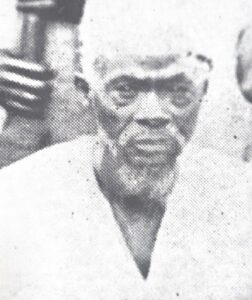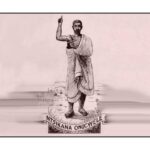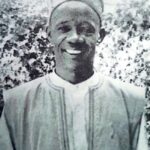MOMO KAI KAI
- 3 Min Read
Momo Kai Kai (circa 1812-circa 1900) was a warrior chief in southwest Sierra Leone, who by the end of the 19th century had become the most influential ruler of the southern coastal region. He was a steadfast supporter of the colonial administration through the resistance struggles of 1898 and after.

PHOTO CAPTION: Momo Kai Kai SOURCE: EAP Library
Born about 1812, he was the son of a Fula father and a Mende mother, and was the older brother of Momo Ja. He succeeded Momo Fula as chief of Bandajuma in the Kittam district.
In 1889, Momo Kai Kai signed a treaty of friendship with the British for which he received an annual stipend. He was also requested by Governor Sir James Shaw Hay (term of office 1888-91), who was engaged on an expansionist policy of road-building and policing in the interior, to build a block house to quarter police. This was completed within a month. Kai Kai was also in favour of Hay’s road-making policy and enthusiastically put his people to clearing roads.
After the proclamation of the Protectorate in 1896, there were many protests from rulers over some of the clauses. In January 1898, Kai Kai, along with several other rulers, decided to see Governor Frederic Cardew in person after receiving an unsatisfactory oral reply to queries transmitted to the governor through a delegation in 1897. Cardew made it clear that if rulers refused to pay house tax, the main source of grievance, the consequences would be very serious. After this ultimatum they promised to collect the tax from their people.
Nevertheless, on Kai Kai’s return, cattle belonging to him and his people were seized by Captain Hood the district commissioner of Bandajuma. When Kai Kai protested to Cardew over this violent seizure, the governor wrote back that the action was justified since he believed that the chief and his people wanted to evade payment of the tax.
After this incident, Kai Kai sided openly with the administration. When the resistance movement began at the end of April, 1898, he took no part in it but gave full cooperation to the British. Police were quartered in his town which became the headquarters of the district of Bandajuma. Kai Kai brought in some of his people to augment the flying columns and to help quiet the resistance. In November, he was awarded a silver medal and chain in recognition of his loyal services during the disturbances.
After the resistance struggles of 1898, Momo Kai Kai emerged as the most important chief in the Bandajuna district, the result of his steadfast support of the colonial administration, which in return helped him to extend his territory. He was officially recognised as paramount chief of Malane chiefdom. Aged 90 at the time of the uprisings, it is difficult to see what alternative course he could have followed, and undoubtedly his decision to side with the British paid him well. He died probably about 1900.
ARTHUR ABAHAM





